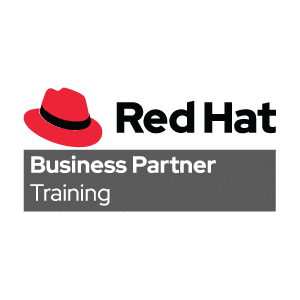Deploy, manage, and troubleshoot containerized applications running as Kubernetes workloads in OpenShift clusters.
The Red Hat OpenShift Administration I: Operating a Production Cluster (DO180) prepares OpenShift cluster administrators to manage Kubernetes workloads and to collaborate with developers, DevOps engineers, system administrators, and SREs to ensure the availability of application workloads. This Red Hat OpenShift course focuses on managing typical end-user applications that are often accessible from a web or mobile UI and that represent most cloud-native and containerized workloads. Managing applications also includes deploying and updating their dependencies, such as databases, messaging, and authentication systems.
The skills that you learn in this course apply to all versions of OpenShift, including Red Hat OpenShift on AWS (ROSA), Azure Red Hat OpenShift, and OpenShift Container Platform.







